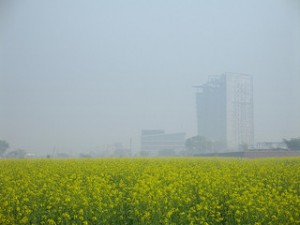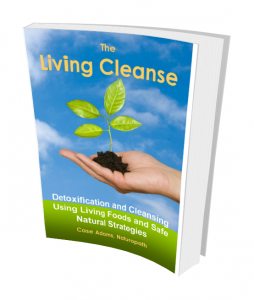Chemical Fertilizers Adding to Greenhouse Gases, Scientists Find
Here is yet another reason to consider eating more organic foods: Chemical fertilizers used to grow conventional foods are contributing to global warming.
Research published in the Proceedings of the National Academy of Sciences has found that the use of chemical fertilizers is a significant source of greenhouse gases.
Just how significant? And why?
In this article
Why are chemical fertilizers so toxic to the air?
Chemical fertilizers are significantly high in nitrogen, and this nitrogen finds its way into the air as nitrous oxide.
And nitrous oxide is the third worst greenhouse gas outside of methane and carbon dioxide.
The researchers found that agriculture is responsible for about 80% of all nitrous oxide caused by humans.
Looking at the greenhouse effect in general, agriculture produces up to 14 percent of all greenhouse gases, according to Michigan State University scientist Dr. Phil Robertson, who is also the director or the National Science Foundation.
U.S. largest chemical fertilizer user in the world
The U.S. is one of the biggest users of chemical fertilizers worldwide. A chemical fertilizer will not only contain nitrogen and phosphorus: It will also contain different minerals like potassium depending upon the source.
Yes, it is the nitrogen that produces the runoff that has been choking many waterways, and producing dead zones around the world. As the fertilizer-rich soils run-off into nearby streams, they are taken to oceans and lakes, where they feed algae, which choke other life within the region.
But these other minerals intended to feed plants – which also feed algae. You might consider chemical fertilizers to also be algae fertilizers.
What about organic fertilizers?
There are numerous sources of natural (organic) fertilizers. These may also contain high amounts of nitrogen. But because they will also contain soil-based organic matter and many other nutrients, organic fertilizers feed nitrogen-fixing organisms. These allow them to help rebuild the soils. Rebuilt soils reduce soil erosion and reduce soil run-off.
Outside of using organic fertilizers, other research has illustrated that utilizing drip irrigation to deliver fertilizers produces less nitrous oxide emission. This doesn’t solve the problem however, and daily drip irrigation with fertilizer reduced nitrous oxide emissions by 42% but raised carbon emissions by 21% in a University of Madrid study.
But the bottom line is that organic food production has many other benefits outside of reducing our body’s chemical burden. If we want to decrease soil erosion, eliminate dead zones and lessen greenhouse gases, the answer is choosing organic foods.
REFERENCES:
National Science Foundation: How much fertilizer is too much for Earth’s climate?
Wu L, Chen X, Cui Z, Zhang W, Zhang F. Establishing a regional nitrogen management approach to mitigate greenhouse gas emission intensity from intensive smallholder maize production. PLoS One. 2014 May 29;9(5):e98481. doi: 10.1371/journal.pone.0098481.
Abalos D, Sanchez-Martin L, Garcia-Torres L, van Groenigen JW, Vallejo A. Management of irrigation frequency and nitrogen fertilization to mitigate GHG and NO emissions from drip-fertigated crops. Sci Total Environ. 2014 Jun 5;490C:880-888. doi: 10.1016/j.scitotenv.2014.05.065.
















